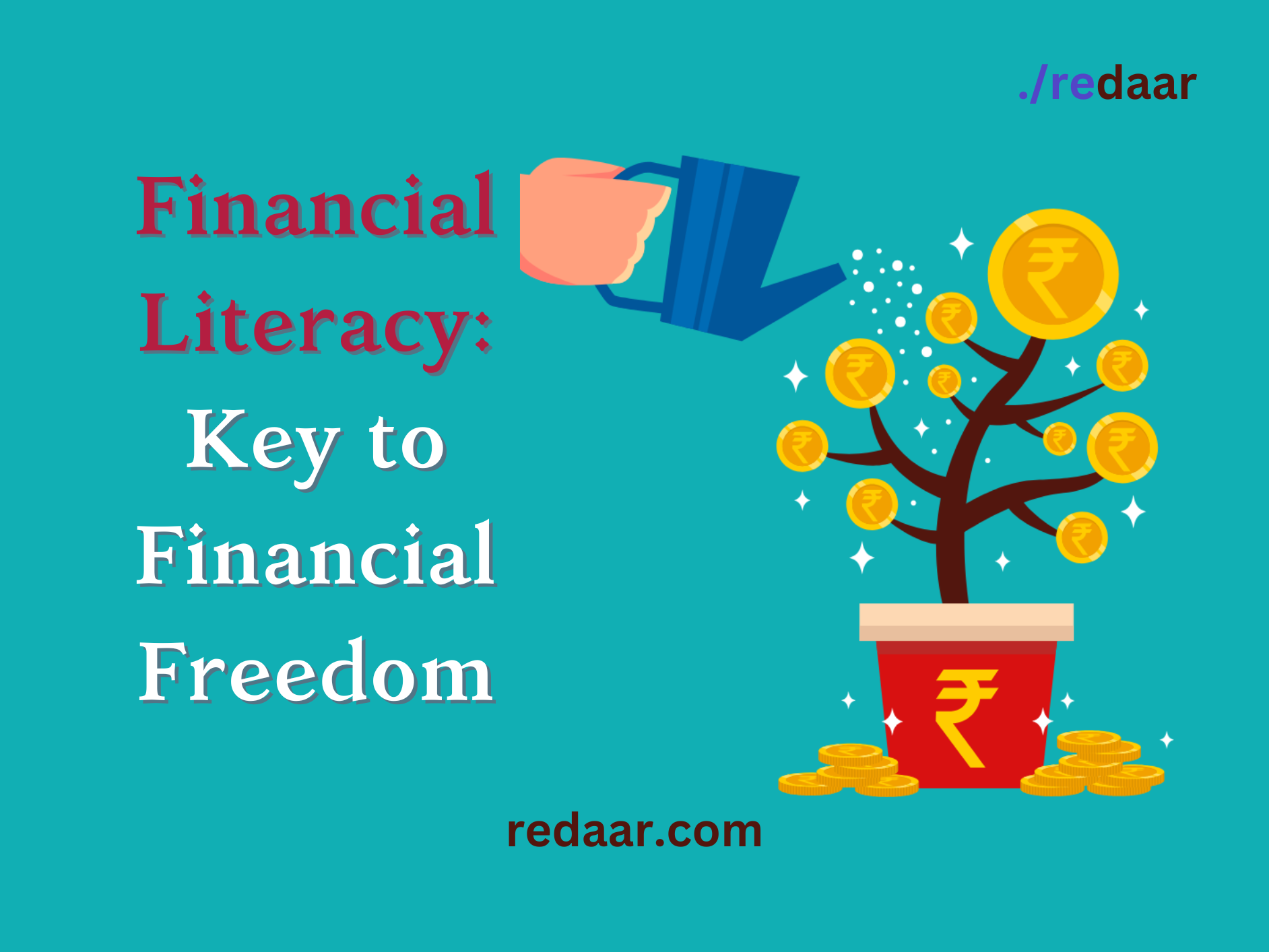The key to financial success is financial literacy. Regardless of age or economic level, everyone should learn how to successfully comprehend and manage their finances. The sheer number of people who lack even the most fundamental understanding necessary to make wise financial decisions is astounding.
We will discuss the significance of financial literacy, how it affects all facets of life, and how you can raise your level of financial literacy to ensure a more secure and prosperous future in this blog article.
Understanding Financial Literacy
A wide range of information and abilities linked to money management are included in financial literacy. It involves comprehending the ideas of saving, investing, and managing debt. People who are financially literate are better able to prepare for both short- and long-term financial objectives and make informed decisions regarding their personal finances.
The Importance of Financial Literacy
Financial Stability: The capacity to obtain and maintain financial stability is one of the fundamental advantages of financial literacy. Financial crises that could affect your life are less likely to occur when you know how to budget, save, and invest. You’ll be prepared to handle unforeseen costs and situations.
Debt Management: Being financially literate is essential for efficient debt management. It enables you to create plans for paying off existing debt and helps you avoid becoming caught in the trap of high-interest debt. A person who understands their finances can distinguish between good and bad debt and use credit strategically to their advantage.
Wealth Building: For many people, accumulating wealth is a long-term objective. Making wise investment choices in stocks, real estate, or other assets requires having a solid understanding of finance. You get the ability to accumulate wealth over time and achieve financial independence as a result.
Retirement Planning: Retirement planning is a crucial component of financial knowledge. Knowing how to assess your retirement needs and how to use retirement accounts like 401(k)s and IRAs can significantly impact your post-work years.
Improved Quality of Life: Better financial decisions are made as a result of financial literacy, which can enhance your quality of life overall. It can result in reduced financial stress, healthier relationships, and the freedom to pursue your interests and ambitions.
The Impact of Financial Illiteracy
On the other hand, the effects of financial illiteracy can be serious and wide-reaching. People with poor financial literacy may struggle with debt, live paycheck to paycheck, or find it difficult to put money aside for significant life events. The following are some typical effects of financial illiteracy:
High Debt Levels: Many people end up drowning in high-interest loans or credit card debt because they lack proper knowledge of interest rates and the effects of debt.
Inadequate Savings: People who lack financial literacy may put off saving for retirement, significant expenses, or emergencies, making them more susceptible to financial shocks.
Poor Investment Choices: Lack of investing expertise frequently results in bad investment choices, which means missed opportunities for wealth accumulation.
Limited Opportunities: Financial ignorance can prevent you from negotiating a salary, comprehending benefits, or planning for professional progression, which can limit your employment options.
Stress and Anxiety: Constant financial stress can cause worry, which has an impact on your physical and emotional health in addition to your financial well-being.
Ways to Improve Financial Literacy
After establishing the significance of financial literacy, let’s examine some doable actions you may do to improve your financial literacy:
Take Online Courses: Online courses on personal finance and investing are widely available, both for free and for a fee. Financial literacy classes are available on websites like Coursera, edX, and Khan Academy.
Read Books: Consider reading literature written by financial specialists. A few of notable works include “Rich Dad Poor Dad” by Robert Kiyosaki and “The Millionaire Next Door” by Thomas J. Stanley and William D. Danko.
Use Budgeting Tools: Track your income and expenses by using budgeting tools and applications. You can use this to better understand your spending patterns and make the required modifications.
Seek Professional Advice: To receive individualized advice on your financial objectives and investments, speak with a financial counselor. They can assist you in developing a personalized financial strategy.
Stay Informed: Follow financial blogs, podcasts, and news to stay up to date on market developments and investing opportunities.
Practice Good Financial Habits: Establish sound financial practices including preserving a percentage of your salary, punctual bill payment, and avoidance of pointless debt.
Set Financial Goals: Set up specific financial objectives for yourself, whether they be retirement planning, student loan repayment, or home savings. You can be motivated to increase your financial literacy by having clear goals.
In today’s complex financial environment, financial literacy is not a luxury; it is a requirement. There are many tools available to assist you in being financially literate, regardless of whether you are just beginning your financial journey or trying to improve your current knowledge. Keep in mind that acquiring financial literacy is a lifelong process, and the more you study, the more prepared you’ll be to make wise financial choices that result in a more secure and wealthy future.
Don’t wait; get started today on enhancing your financial literacy. It is essential to your financial security. You can start by reading our blogs regularly, we talk about finance along with technology and health.

